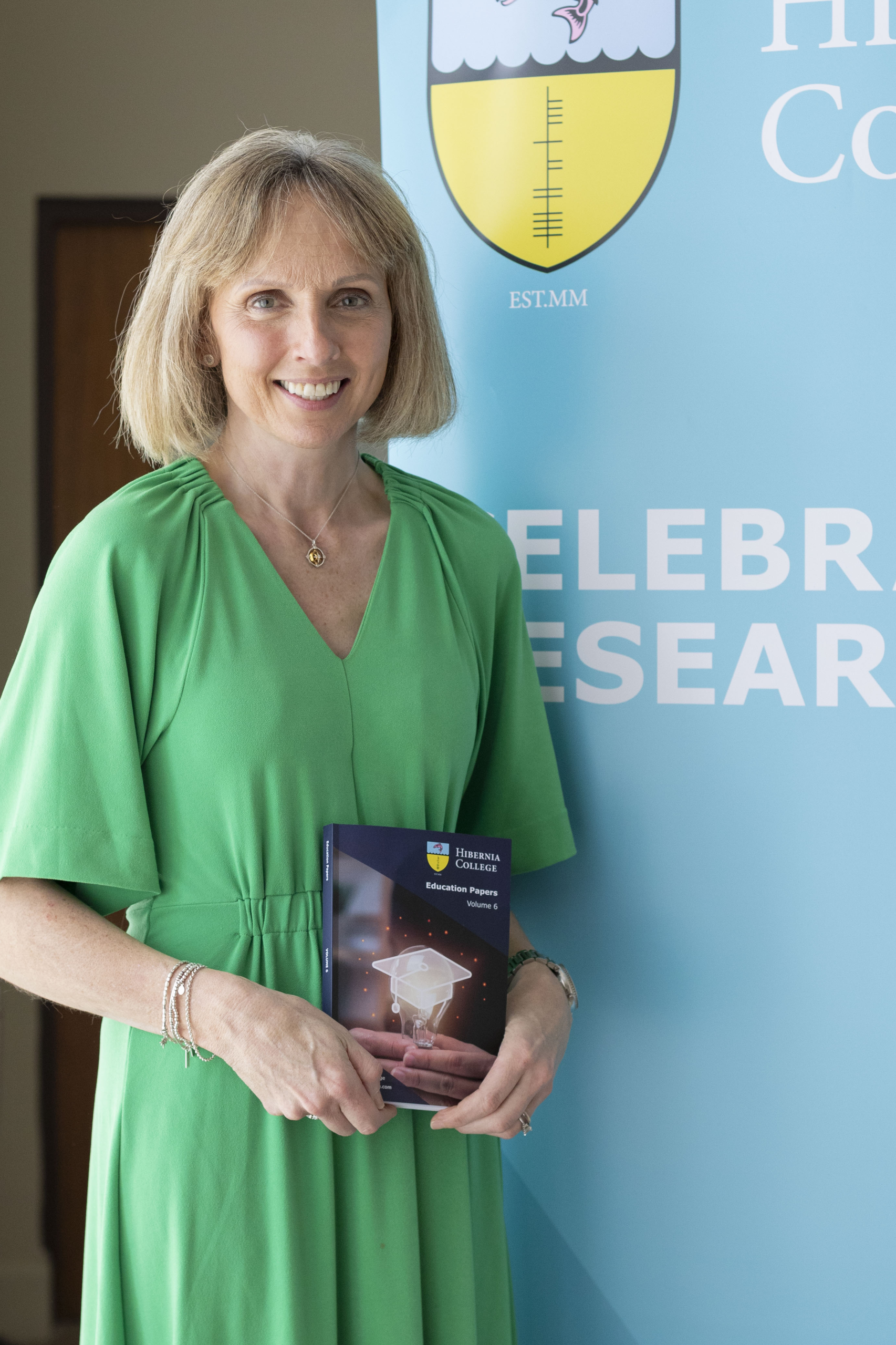
Research profile
Therese Barrett
PME in Primary Education
Therese continues to provide children with ample opportunities that encourage them not only to engage in the classroom but to establish a culture of inquiry-based learning. Presently, she is teaching a Fourth Class in a primary school in Cork.
Research Paper Title
‘A Whole-School Approach’: An Integrative Literature Review Exploring Restorative Practices Experienced in the Classroom
Abstract
This Integrative Literature Review (ILR) aimed to determine the nature of restorative approaches as practised in an educational primary school setting. The practice fundamentally seeks to build relationships through social engagement and resolve disputes within communities through relational practices of affect statements, affect questions, circles and informal conferences. Restorative practice (RP) is increasingly becoming embedded in school polices as an alternative approach to managing behaviour in the classroom. The concept encourages individuals to assume responsibility for any harm caused within a community and focuses on a restorative lens of resolve and repair as opposed to a retributive one of assigning blame and punishment. The foundation of RP is firmly rooted in the restorative justice movement and adapted to support justice, social and educational settings. This study critically explored the ways in which mainstream primary teachers and school administrators can successfully implement RP while also negotiating with potential obstacles in adopting it. The study interprets how a school ethos and proactive teachers that include restorative initiatives daily can create a relational environment that connects people together, prevent conflict arising, and restrict barriers to its implementation. However, the challenge of investigating RP is one
whereby its implementation success rate cannot be easily measured.
Biography
Therese Barrett is a graduate with a Bachelor of Commerce Degree from Cork University College. She has worked in rehabilitation medical sales for 17 years, concentrating on paediatric sales and customer support. The role entailed working closely with persons with disabilities, caregivers, and occupational therapists building relationships to garner trust, sharing knowledge and providing ongoing training to update clients on best practices. Therese’s interest in education ignited with the birth of her children. Here fascinated to understand how children grasp and learn in their first years of life prompted her to undertake a Diploma in Montessori Studies with Portobello College. The insights learned proved valuable, providing her with worthy and stimulating resources to help children develop cognitively and physically. This continued desire led her to undertake the Professional Master of Education (PME) in Primary Education at Hibernia College. Having graduated in August 2022, Therese continues to provide children with ample opportunities that encourage them not only to engage in the classroom but to establish a culture of inquiry-based learning. Presently, she is teaching a Fourth Class in a primary school in Cork.
Research motivation
Can you tell us a bit about your research project?
My research project looked at restorative practice and how it is implemented inside the classroom and within the whole school. The research I found is based outside Ireland, mainly in Canada, Australia, and the UK. Restorative practice fundamentally seeks to build relationships through positive social engagement and solve disputes between parties through relational practices. How this translates to an educational context lies on a continuum between proactive practices modelling prosocial behaviours using language that encourages and supports people, and reactive practices using restorative practices as alternative methods to existing punitive structures for behaviour regulation. The research reveals that restorative practices are largely predicated on personal values and beliefs. It is hard to give it a definitive definition; however, when using and implementing restorative language within the school context, the outcomes seen are largely people who are cooperating and taking responsibility for any harmful actions caused intentionally or otherwise, with one outcome in mind to restore relations and resolve to continue working together.
What motivated you to undertake this research?
A module on restorative practices during my college training. It made complete sense to me, especially within the education system where we need to model respectful social interactions between pupils and teachers and between pupils and their fellow pupils. Following a framework of engaging children with good and interesting learning content, giving clear rationale to any decisions made within the school context and clearly outlining your expectations of each pupil and teacher.
What impact has it had on your practice?
Before I engaged in this research, I would endeavour to treat people respectfully. This research has given me the tools to restore small disputes within the classroom between pupils, using the restorative language of ‘What happened?’ and ‘What were you thinking at the time?’, instead of asking judgemental questions like ‘Why did you do it?’. This allows children to think about what happened and gives them time to reflect. Modelling and nurturing an expectation of good behaviour and implementing whole school policies for wellbeing and the code of behaviour give children good structures and boundaries they can depend on.
How important do you feel research will be in your future practice?
Research questions our methods and ways of thinking as we work to improve upon them. In a world where things change constantly, I think this is always vital.